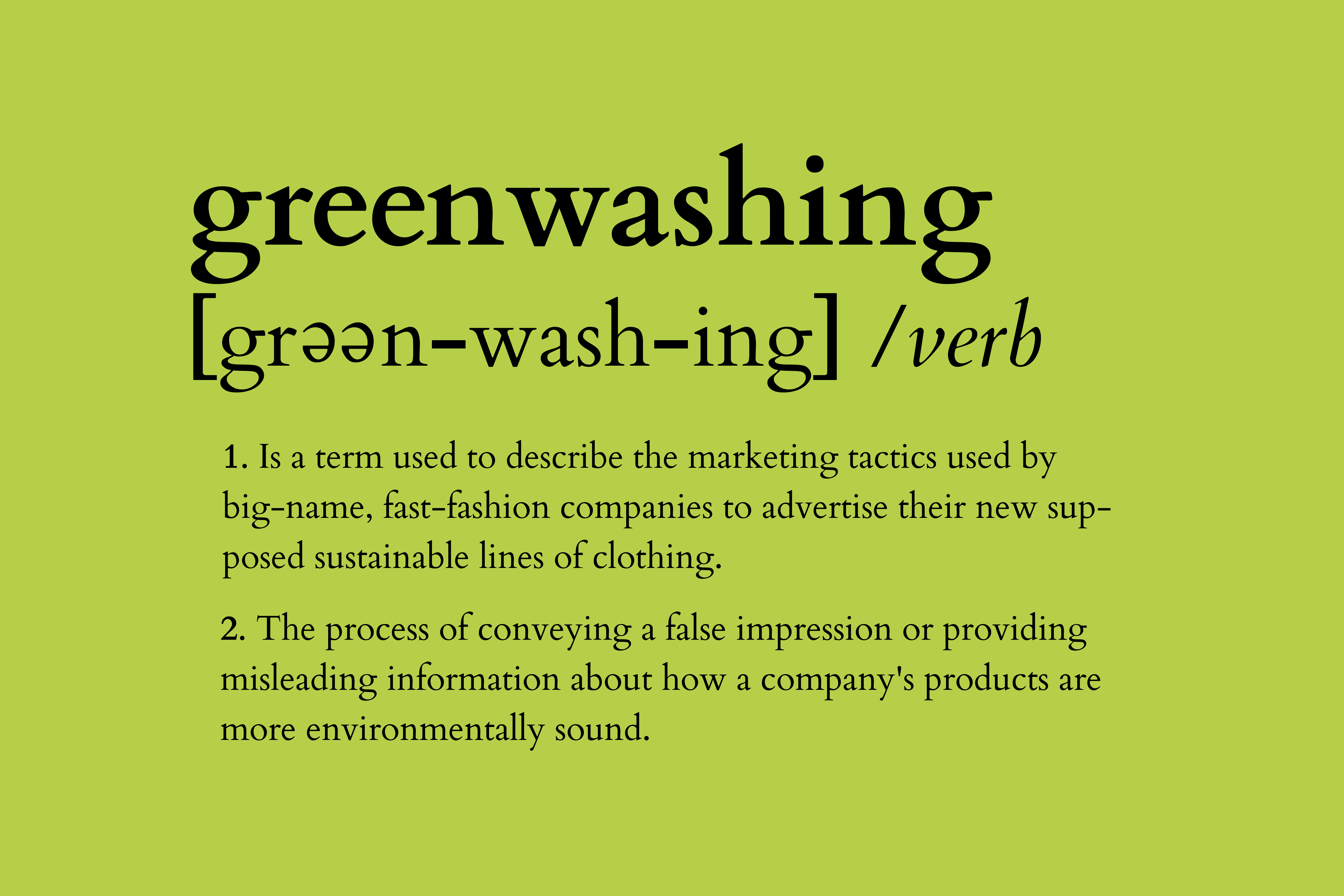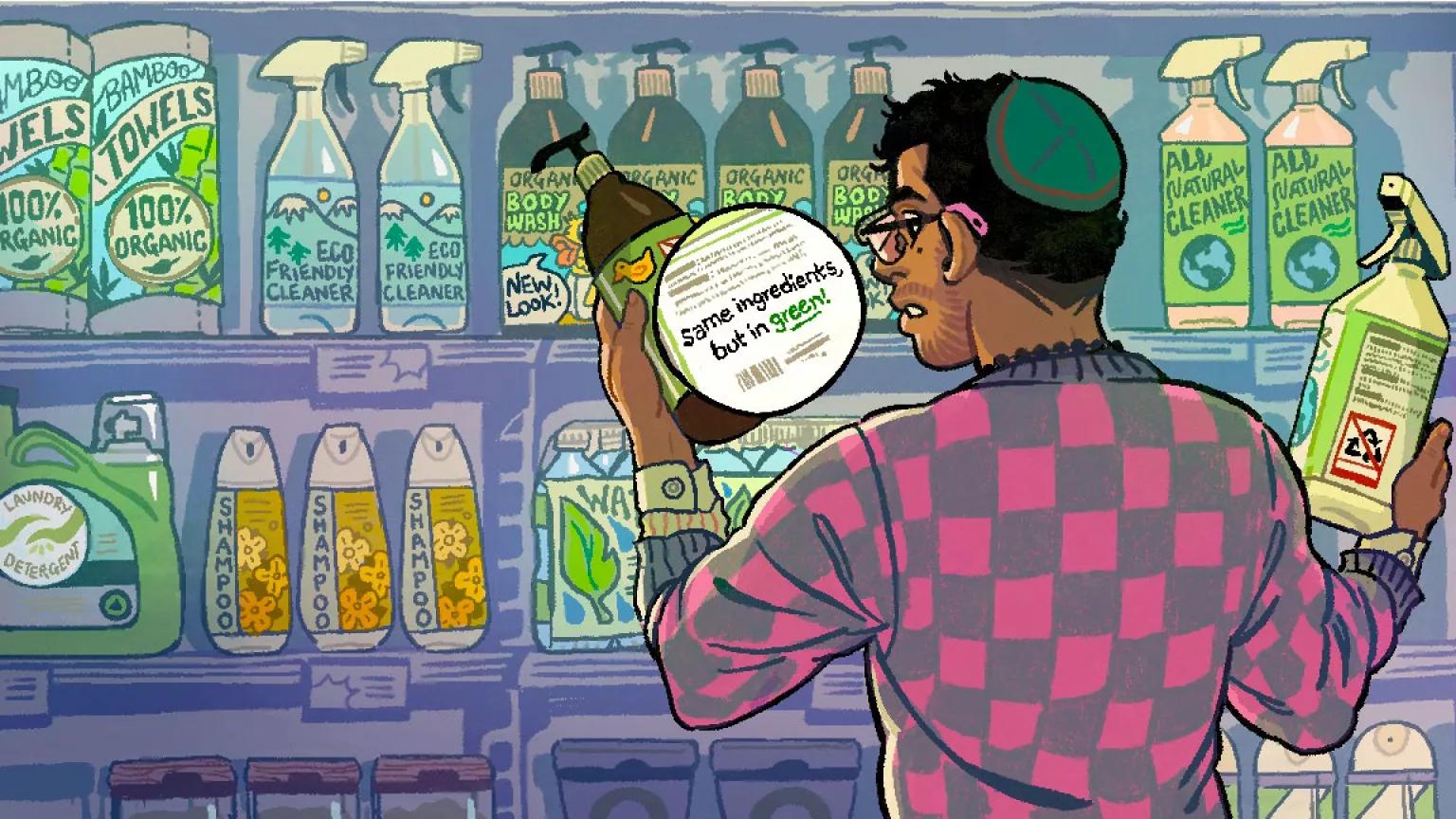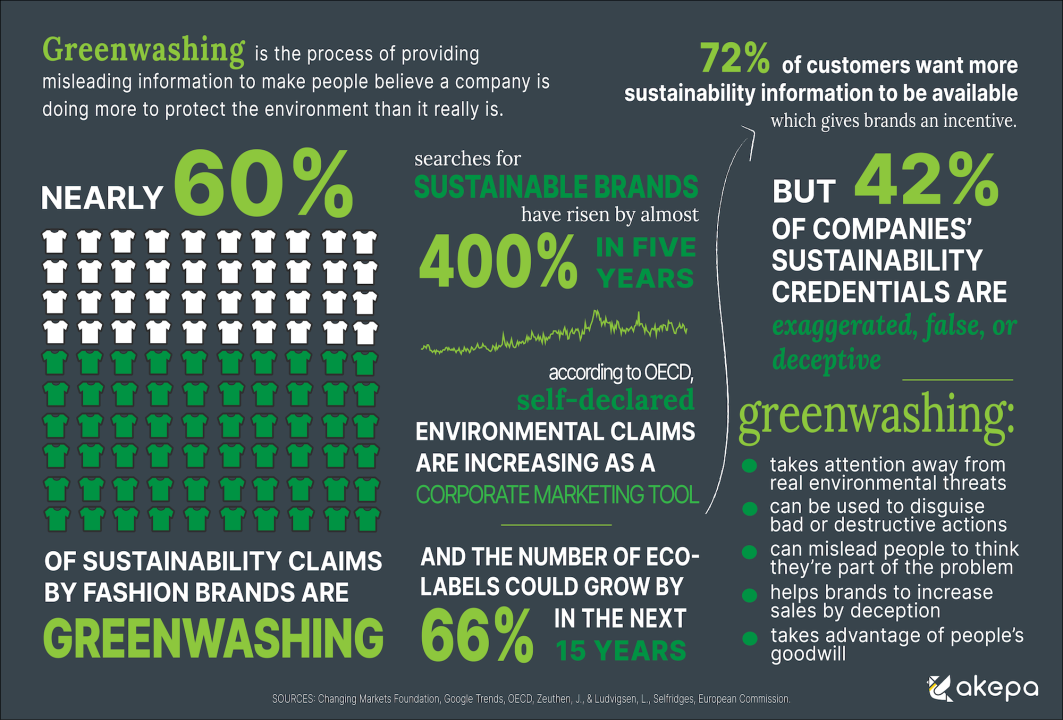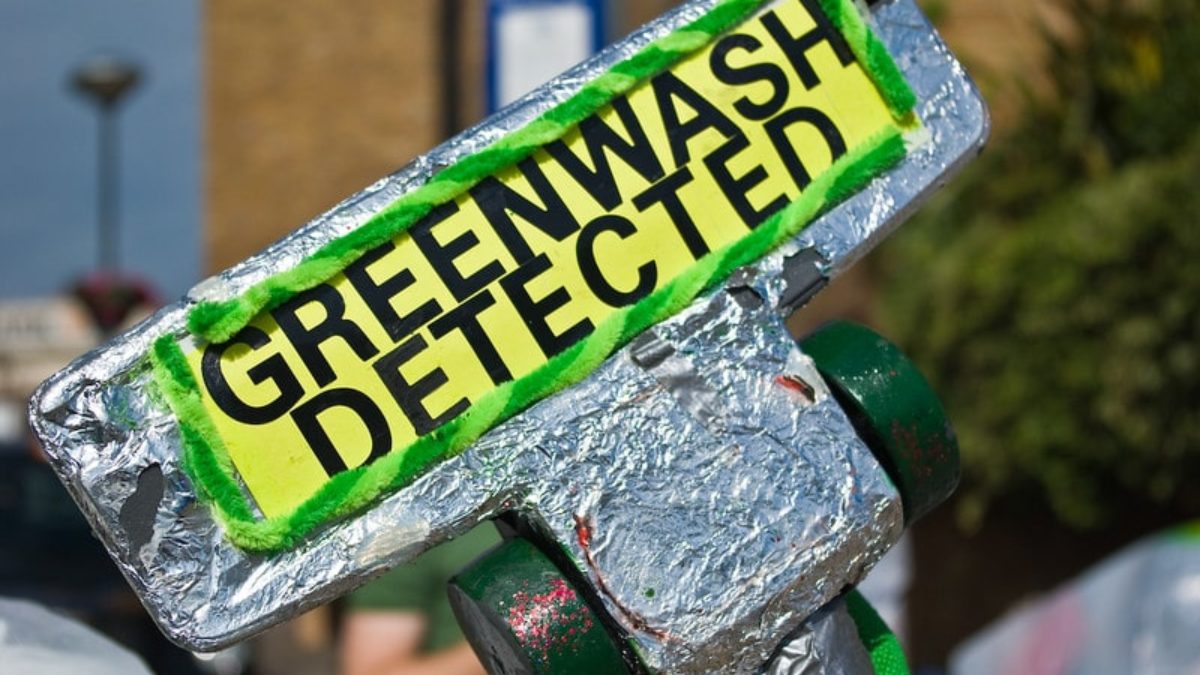Content
SHARE

In today’s world, where sustainability is increasingly important, consumers need to be able to distinguish between brands that are genuinely committed to sustainability and those that engage in greenwashing – misleading marketing tactics that create the illusion of environmental responsibility. Understanding greenwashing and recognising genuine sustainability efforts can empower consumers to make informed choices and support brands that truly impact the planet. In this article, we will explore the rise of greenwashing, how to spot greenwashing tactics, the essence of genuine sustainability efforts, and ways to distinguish between the two. We will also examine the impact of greenwashing on consumers and the environment and discuss how we can move towards a more sustainable future.
Understanding the Concept of Greenwashing
Greenwashing has become increasingly prevalent in modern marketing strategies. With ecologically-minded consumers demanding change, companies quickly tout their “sustainable” practices without truly meeting the requirements for a greener future. Greenwashing can manifest in different ways, such as false eco-certifications, exaggerated environmental claims, or irrelevant “green” packaging that masks a product’s true environmental impact.

(Source: The Manor)
The Rise of Greenwashing in Modern Marketing
The increased focus on sustainability has pressured brands to appear eco-friendly, leading to a surge in greenwashing attempts. Many companies, eager to capitalise on this trend, are more focused on boosting the image of sustainability rather than implementing tangible actions to reduce their environmental footprint. As consumers become more aware of this issue, developing the necessary skills to spot greenwashing and identify brands that are making genuine sustainability efforts is crucial.
(Source: Sigma Earth)
How To Spot Greenwashing Tactics
Identifying greenwashing isn’t always easy, but there are tell-tale signs to watch out for. Look for vague language that lacks specific details, such as terms like “eco-friendly” or “green” without any substantiating evidence. Be cautious if a brand emphasises a single environmental attribute without addressing broader sustainable practices. Additionally, assess whether a company’s sustainability claims align with its overall business operations and explore if any independent certifications verify their claims.
The Essence of Genuine Sustainability Efforts
While greenwashing may be disheartening, it’s important to remember that many brands are genuinely committed to sustainability. These authentic, sustainable brands prioritise implementing meaningful changes and positively impacting the environment. Understanding the key characteristics of such brands and the role of transparency is fundamental to identifying and supporting their efforts.
Key Characteristics of Authentic, Sustainable Brands
Authentic, sustainable brands prioritise transparency. They actively engage with their consumers by openly sharing information about their sustainable practices and the impact of their products. They go beyond making claims and provide clear evidence of their commitment, including third-party audits or certifications. These brands also adopt a holistic approach to sustainability, addressing various aspects of their operations, supply chain, packaging, and energy consumption.
The Role of Transparency in Sustainability
Transparency is essential to foster trust between consumers and brands. Authentic, sustainable brands recognise this and are open about their sustainability journey, including their achievements and challenges. They seek stakeholder input, actively listen to their concerns, and iterate on their practices to continuously improve their environmental performance. By being transparent, these brands invite consumers to be part of their sustainability mission, creating a sense of shared responsibility.
(Source: NRDC)
Distinguishing Between Greenwashing and Genuine Effort
Differentiating between greenwashing and genuine sustainability efforts is crucial to support brands that align with your values. Thorough research and critical thinking are necessary to avoid being misled by deceptive marketing tactics. By asking the right questions and digging deeper into a company’s sustainability claims, you can ensure that your choices contribute to a greener future.
The Importance of Thorough Research
Conducting comprehensive research is essential when assessing a brand’s sustainability practices. Look beyond their marketing materials and explore their website, annual reports, and sustainability reports. Seek out information about their supply chain practices, resource usage, waste management, and efforts towards reducing greenhouse gas emissions. A brand genuinely committed to sustainability will provide detailed information about its environmental impact and efforts to mitigate it.
Questions To Ask When Assessing Brand Sustainability
To identify genuine sustainability, it’s essential to ask critical questions. Do actions and measurable goals back up the company’s commitment to sustainability? Are they progressing towards reducing their carbon footprint or increasing renewable energy usage? Do they prioritise fair trade and ethical sourcing? Don’t hesitate to contact the brand directly with your questions, as their responses can provide valuable insight into their commitment to sustainability.
(Source: The Sustainable Agency)
The Impact of Greenwashing on Consumers and the Environment
Greenwashing can have harmful consequences, both for consumers and the environment. Misleading sustainability claims can confuse and misinform consumers, leading them to make choices that don’t align with their values. This can undermine the efforts of brands that genuinely strive for sustainability while perpetuating unsustainable practices that harm the planet.
The Potential Harm of Misleading Sustainability Claims
When consumers believe they support sustainable brands but are misled by greenwashing tactics, progress towards a greener future is hampered. This erodes trust between consumers and brands and jeopardises the efforts of businesses genuinely working towards sustainability. This can lead to consumer cynicism and fatigue, making it harder for people to make informed and sustainable choices.
The Power of Informed Consumer Choices
Informed consumers have the power to drive change. You can influence the market towards more responsible practices by recognising greenwashing and seeking authentic, sustainable brands. When consumers demand transparency and hold brands accountable for their environmental claims, the pressure to engage in greenwashing diminishes. It’s important to exercise your purchasing power thoughtfully, supporting brands that align with your values and rewarding genuine sustainability efforts.
(Source: Earth.Org)
Moving Towards a More Sustainable Future
The journey towards a sustainable future requires collective effort. While there is still a long way to go, promising trends indicate positive change. By understanding our role as consumers and embracing our potential for impact, we can be catalysts for change and propel the movement towards a more sustainable future.
The Role of Consumers in Promoting Genuine Sustainability
Consumers are pivotal in driving demand for genuine sustainability and holding brands accountable. By staying informed, supporting authentic, sustainable brands, and sharing knowledge with others, we can collectively push for greater transparency and positive change. When we demand sustainability from the brands we support, we empower them to adopt more responsible practices and make a true difference.
The Potential for Change: a Look at Promising Trends in Sustainability
The sustainability landscape continues to evolve, with new innovations and initiatives making their mark. From the rise of circular economy models and regenerative agriculture to the increasing emphasis on social and environmental justice, there are inspiring developments that give hope for a sustainable future. We can drive these trends forward through collaboration, awareness, and informed choices and create a world where sustainability is the norm.
By distinguishing between greenwashing and genuine sustainability efforts, we can actively contribute to a better future. We can create a marketplace that promotes positive environmental impact through informed choices and supporting brands prioritising sustainability. Let’s take a stand against greenwashing and support authentic, sustainable brands working towards a greener and brighter future for all.
Frequently Asked Questions About Greenwashing vs. Genuine Effort
What Is Greenwashing?
Greenwashing is a marketing tactic where a company falsely portrays its products or services as environmentally friendly, often through misleading claims or deceptive advertising, to capitalise on the growing consumer demand for sustainable options.
How Can Consumers Identify Authentic, Sustainable Brands?
Consumers can identify authentic, sustainable brands by researching their sustainability reports, verifying third-party certifications (like B Corp or Fair Trade), examining the transparency of their supply chains, and evaluating the sustainability of their entire product lifecycle.
Why Is It Important To Distinguish Between Greenwashing and Genuine Sustainability?
It’s important to differentiate between greenwashing and genuine sustainability to ensure that consumer choices genuinely contribute to environmental and social goals rather than being misled by companies prioritising profit over real ecological responsibility.
What Actions Can Consumers Take If They Suspect a Brand of Greenwashing?
If consumers suspect a brand of greenwashing, they can demand more transparency from the company, report misleading claims to regulatory bodies, share their findings with other consumers, and support only those brands that demonstrate verifiable and genuine sustainability efforts.
















